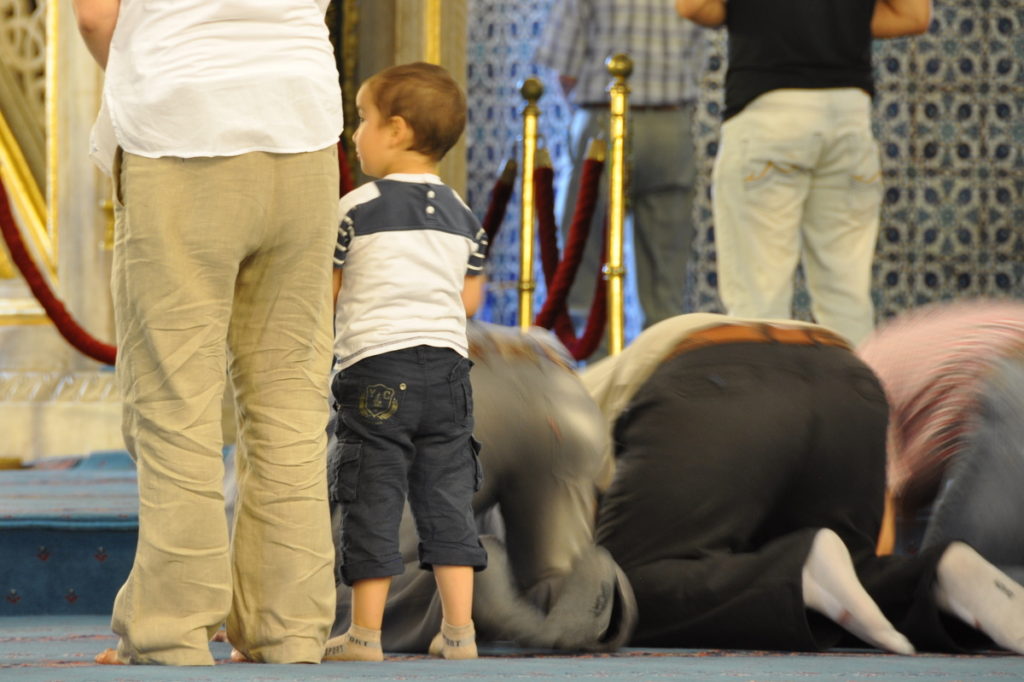As an Iranian-American, I often get asked about the crisis in the Muslim world. I try to lean into the conversation, knowing a lot of sincere people are grasping for solutions.
After the Iraq War, most Americans want to avoid creating a Vietnam-style scenario in the Middle East. We have learned that we can no longer apply colonial remedies or strong arm our enemies in a conflict. As UC Davis law professor Karima Bennoune, author of Your Fatwa Does Not Apply Here, puts it:
We need an unyielding and thoughtful response to jihadist terror. Force is not enough. Moreover, the right needs to understand that force alone is not enough, and misused force can have disastrous consequences. And the left needs to come to terms with the fact that sometimes force must be used to destroy movements bent on deliberately mowing down civilians.”
Islam and religious freedom are perhaps the most important issue of our time. We need thoughtful strategies to benefit Muslim societies. In researching this issue, I spoke with Mary Habeck (John Hopkins), Jennifer Bryson (Zephyr Institute), Daveed Gartenstein-Ross (Georgetown University), Mike Constantz (PEACE Plan, Saddleback Church) and Kathleen Cooke (Cooke Productions). While they shared their feedback with me as a friend or coworker, I believe their thoughts are significant, and should be passed on to others.
Here, then, are nine practical ways to counter Islamic radicalism:
- Research the root of radicalization. Look at heart and soul issues. Ask why young men, and sometimes women, are drawn to radical Islam. Many in Muslim-majority nations are experiencing a loss of spirituality. They need to learn about how to be reconciled with God, self and others.
- Discredit the dangerous ideologies of Islamism, Salafism and jihadism. We must not support nations that export or fund terrorism. Servant leaders must replace ego-centered political leaders, religious dictators and warlords. We cannot tolerate political parties that support violent End Times theologies. Muslims must learn to disagree without using violence.
- Narrowly define the enemy. Some Islamists are more dangerous than others. Keep the conflict measurable. Applaud countries like Tunisia that are resisting radicalism and transitioning to democracy.
- Train and equip parents. Recognize that radicalization usually occurs when parents don’t take a strong role in the lives of their children. Parents must learn how to speak to their kids about the dangers of radicalization. The number one factor that stops a suicide bomber is his or her mother.
- Focus on economic reform. Grinding poverty is the impetus for thousands to join death cults in the Islamic world. Many Muslims need help with education, microenterprise and savings programs. NGOs and churches can assist them.
- Create advocacy networks. The King of Jordan invited many world leaders, including Americans, to advise him on peacemaking and recovery projects. Such networks must include researchers, clerics, businesspeople, policymakers and stakeholders. Religious advisors should not only be older males, but women, and young people as well.
- Empower women. This includes training, not only in earning a living, but also in raising families that are committed to building free and civil societies. We must speak out against gender segregation and support girls’ education at all levels.
- Leverage the media and the arts. Share testimonies of former extremists and victims. Show role models. Rather than restrict free speech on TV or the internet, provide a counter narrative of life and peace. Enlist soccer stars and celebrities to promote a message of peacemaking.
- Embrace religious freedom. Challenge Muslims to explore other faith traditions and the benefits of secular society. As new democracies are formed in North Africa and the Middle East, Islam should no longer be the state religion. When governments are neutral on religion, religious leaders focus less on power and conflict, and more on civil society and social issues that concern their constituents. We must challenge Muslims to transition from black martyrdom (violence) to white martyrdom (service).
Together, we can encourage Muslims to rethink attitudes on conflict, restrictions, citizenship, and religious rights. We can counter radicalism and share a message of hope grounded in freedom for all.

